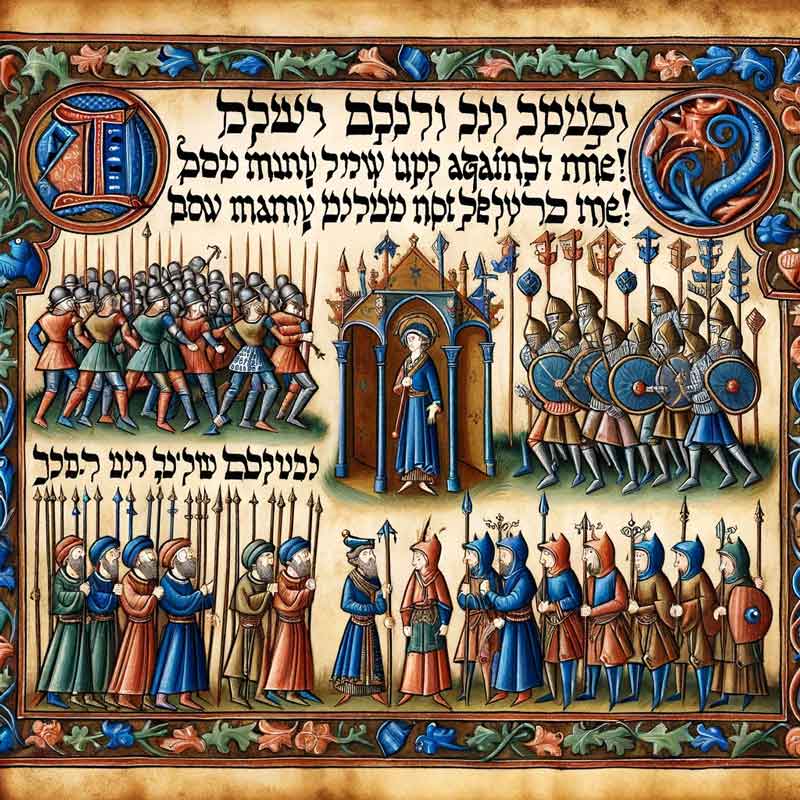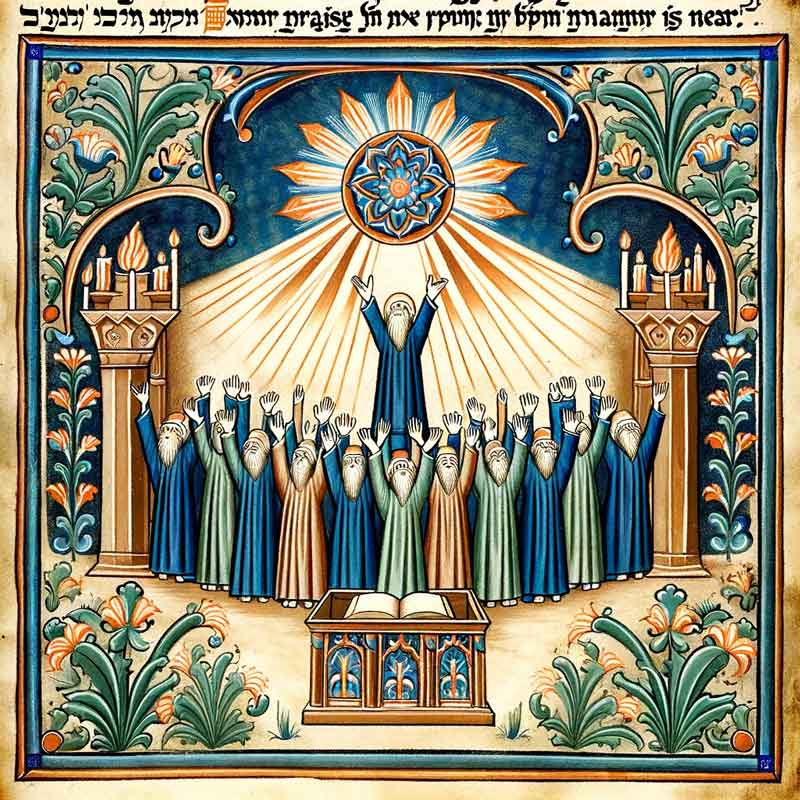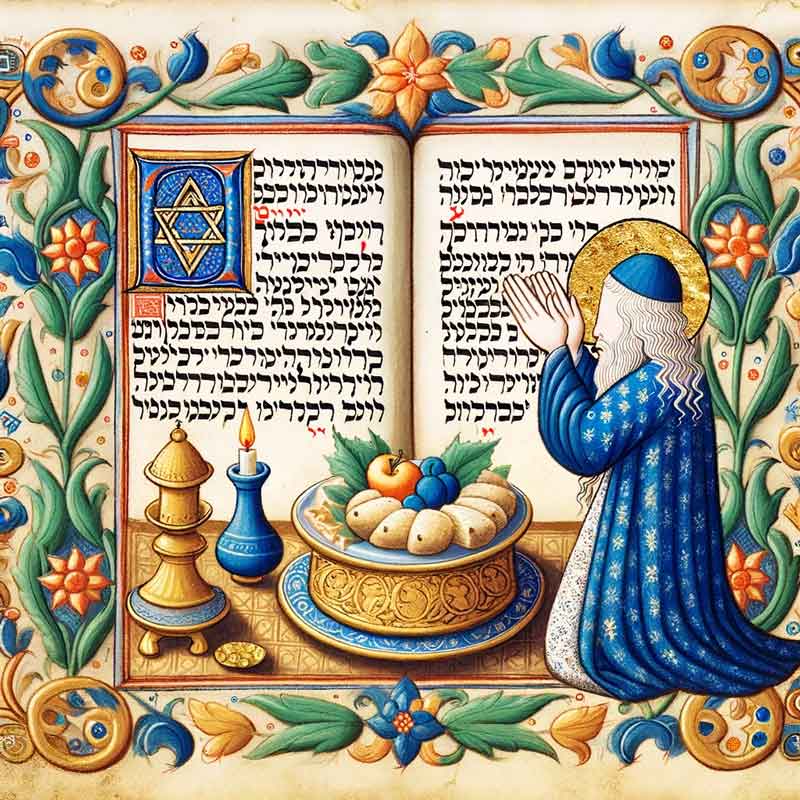Question from a Reader
Dear Rabbi Joshua,
I’m seeking a deeper understanding of Tehillim 3. Can you provide an explanation of its themes and messages?
Sincerely,
Robert Garcia
Context and Background of Tehillim 3
Dear Robert,
Tehillim 3, also known as Psalm 3, is a deeply moving chapter in the Book of Psalms. Traditionally attributed to King David, this psalm is said to have been composed during his flight from his son Absalom, as narrated in the Second Book of Samuel.
This psalm reflects a time of great personal crisis and turmoil for David, making it a poignant expression of faith and reliance on God during times of distress.
Themes of Adversity and Faith
Psalm 3 opens with David expressing the magnitude of his troubles, noting the many foes he faces. Despite these overwhelming odds, the central theme of the psalm is David’s unwavering faith in God as his protector and sustainer.
David’s declaration of trust in God, despite his adversaries, is a powerful testament to his faith. He acknowledges God as his shield and the One who bestows honor upon him.
God as the Deliverer
A pivotal aspect of this psalm is the portrayal of God as a deliverer. David speaks of calling out to God and being answered from the holy mountain, symbolizing divine intervention and support. This imagery is a profound reminder of the belief in God’s ability to rescue and comfort in times of despair.
The Peace of God’s Protection
David also describes lying down and sleeping in peace, waking again because the Lord sustains him. This symbolizes the peace and assurance that comes from trusting in God, even amidst turmoil.
Conclusion: A Prayer for Redemption
The psalm concludes with a plea for God to save, coupled with a recognition of God’s power to bless His people. It serves as a reminder of the redemptive power of faith, especially in the face of adversity.
Tehillim 3 is a powerful expression of trust in God’s protection and deliverance, resonating with anyone facing trials and seeking solace in faith.
May your study of Tehillim bring you comfort and strength.
Shalom,
Rabbi Joshua


